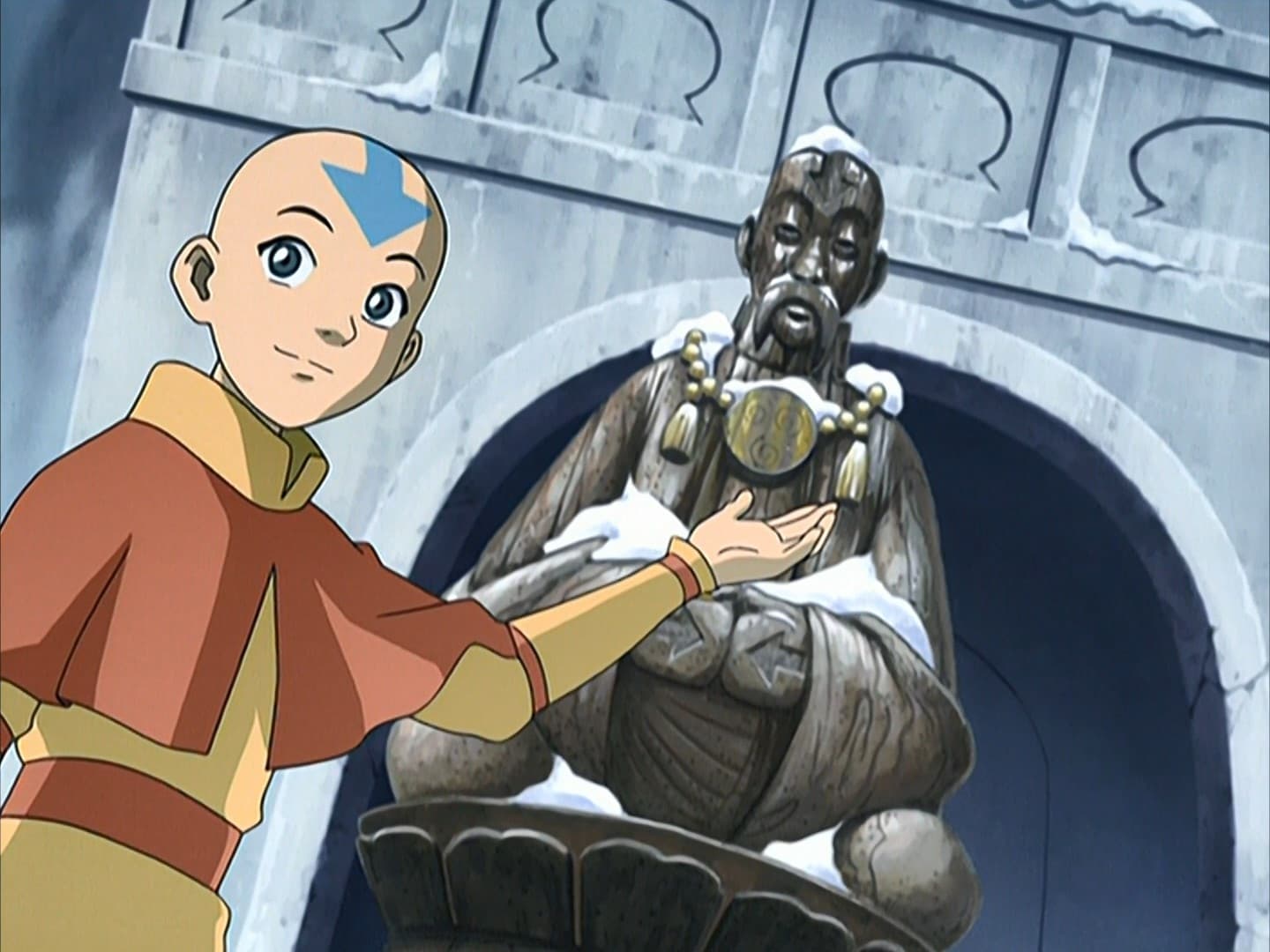
Avatar: The Last Airbender (2005)
Avatar: The Last Airbender (2005)
- Even in exile, my nephew is more honorable than you.
A:TLA’s first masterpiece, but certainly not its last. This is the episode where the series finds its footing and delivers something incredible. These are primarily stories of family, and I say the plural “stories”, because both plot lines deal with identical themes. And yes, they also deal greatly with loss, which I’ll talk about first.
Aang travels back to the air temple, which a century ago, was once his home. There’s some interesting world-building as Aang gives Katara and Sokka a tour of the place, and we also learn, through a flashback, about his old guardian and mentor Monk Gyatso, who proves to be wise and have a really good sense of humor. All of this seems like a nice trip down memory lane for the kid, but the truth is inevitably revealed to him, when he stumbles upon Gyatso’s old corpse, surrounded by countless firebenders, who undoubtedly played a part in his demise. He’s completely taken over by his emotions, which leads to an emotional whirlwind of sadness and anger, quickly putting him in the Avatar state.
Temporarily moving on to Zuko now, who is dealing with loss in his own way. After dealing with the shipwreck from last episode, he makes the decision to keep the Avatar’s reappearance secret from the rest of the Fire Nation, in hopes of regaining his honor and the respect of his father. However, consequences soon follow when Commander Zhao discovers the truth. The commander gets under Zuko’s skin, and in a fit of rage, the kid challenges him to an Agni Kai. Fast forward to the battle, and Zuko is immediately at a disadvantage. His impatience and anger cause him to lose focus, rush his attacks, and eventually fall on his back. But in a moment of desperation, he pulls through. As soon as Zhao’s fire blasts started heading directly towards his face, something sparked inside of him, and he was filled with DETERMINATION. Zuko, the banished prince, was not about to repeat the same incident which “disgraced” him in the first place. At the last second, he saves himself and throws the commander off his balance, winning the fight.
At this point, it’s clear both Aang and Zuko have been through a lot, but now it’s time to discuss the most important theme of this episode:
Family, or “togetherness” is a recurring theme for this show, but this episode is where it officially begins. Aang, at this point in the episode, is in a lot of emotional pain, but Katara is here for him. She relates to him on the same level he’s at, because she knows what it’s like to lose family, and reassures him. She says that she, Sokka and he are his family now, and it calms him down.
Zuko, after winning his fight, spares Commander Zhao and walks away with his dignity. The commander, on the other hand, lashes out at him with an attack, but is put in his place by Uncle Iroh.
“So this is how the great Commander Zhao acts in defeat? Disgraceful. Even in exile, my nephew is more honorable than you.”
Even when Zuko almost seems too far gone, he stands by him, because he knows there’s still hope for him, even if it doesn’t appear that way from the outside. This is only a hint of Iroh’s greatness.
These two plot lines compliment each other perfectly, as they essentially mark the beginnings of the journeys these two characters go on. Both stories are sympathetic and exciting, with lots of similarities; it only gets better from here on out.
And finally, there’s the ending sequence: Aang looking at the temple, his old home, one last time, whilst flying away on Appa. It’s a bittersweet moment, and probably one of my favorite endings of the series. A poignant farewell to the life he once knew, and an acceptance of the life that he must face now. Moments like these make this show into the lived-in masterpiece that it is.



















